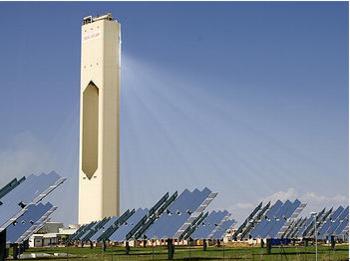 With the sharp decline in solar cell prices, Japan has also announced the bankruptcy of solar cell manufacturers. Affected by the global oversupply, the phenomenon of the evacuation of manufacturers from the upstream to the downstream of solar cells has emerged. Is the oversupply first relieved or will it go bankrupt before then? The endurance battle of various manufacturers continues.
With the sharp decline in solar cell prices, Japan has also announced the bankruptcy of solar cell manufacturers. Affected by the global oversupply, the phenomenon of the evacuation of manufacturers from the upstream to the downstream of solar cells has emerged. Is the oversupply first relieved or will it go bankrupt before then? The endurance battle of various manufacturers continues. The Japan Solar Battery Exhibition "PVJapan2012" was held on December 5-7. At the MEI Conference and Exhibition Center, a venue for the Chiba Makuhari, more than 10,000 people attended the event each day and the show closed at a grand event.
At PVJapan2012, the largest number of visitors was the exhibition area where solar cell manufacturers gathered, but there was an empty space in the exhibition area. This is where solar cell manufacturer YOCASOL (Oita-ku, Fukuoka City) is scheduled to exhibit.
On November 29, one week before the opening of the exhibition, YOCASOL filed an application to the Tokyo District Court for the application of the Civil Rehabilitation Act. The stalling of the European solar cell market, coupled with drastic price declines, has also seen solar cell manufacturers in bankruptcy in Japan.
YOCASOL's predecessor was the Fukuoka factory of MSK, a medium-sized solar cell manufacturer in Japan. In 2006, MSK was acquired by Suntech Power, which is currently the world's largest producer of solar cells. Suntech, which has a large-scale factory in China, decided to close MSK soon after it acquired MSK.
MSK began manufacturing solar cells in 1984 and is an influential and established manufacturer. "At that time, when we were in high demand for technical strength and the market was expanding, the decision to close the factory was unacceptable" (former MSK people).
As a result, staff at the Fukuoka factory implemented EBO (Employee Acquisition). At the same time as the employees themselves contributed, the insufficiency was funded by Kyushu’s corporate rejuvenation and Marubeni, eventually establishing YOCASOL.
Sustained oversupply of global supply YOCASOL started very smoothly because of the good momentum of the OEM (OEM) business. However, as the European market stalled and OEM orders decreased, the company gradually became in trouble. According to data from Imperial Data Bank, YOCASOL’s sales reached approximately 7.9 billion yen during the peak period of the 2008 fiscal year (as of March 2009), while it decreased to approximately 1.3 billion in fiscal year 2011 (as of March 2012). JPY. In the end, the company’s debt is approximately 2.46 billion yen, and it is no longer able to rely on its own strength to recover.
An industry source pointed out that "the reason for bankruptcy is to rely on OEM, lack of independent brands." For Japanese manufacturers, residential solar cells with high added value are the source of profits. After the implementation of the fixed price purchase system, orders for solar cells used by power generation companies continued to grow, but price competition was fierce and margins were small. Residential solar cells have set a price ceiling for subsidized payment standards, and the prices remain high.
YOCASOL also launched “AOSoLARâ€, a self-owned brand for residential solar cells, in 2011. However, it failed to establish a complete warranty and after-sales service system. It has been in a bitter struggle.
In this situation, YOCASOL was hit by a sharp drop in prices. "The size of the global solar cell market is about 30 GW (1 GW = 1 million kW), but the production capacity is as much as 50 GW, apparently in a state of oversupply," Yoshiki Iizumi, president of the Japan Resource Integration System, pointed out. The spot price for polysilicon modules was "about $1.6 per watt in January 2011, and in November 2012 it dropped to less than $0.7 per watt."
Germany's Q-Cells, which had claimed that its production ranks first in the world, declared bankruptcy in April 2012. In the oversupply of China, there are also reports that companies have been eliminated. In Japan, Mitsubishi Heavy Industries has given up its solar cell production and sales business, and SUMCO and JFE projects have also withdrawn from the raw materials business. Nippon Steel Materials and Sharp's joint venture company ceased the raw material manufacturing business at the end of September 2012 and will disband the company at the end of March 2014.
The cancellation of the oversupply problem takes time. Although solar battery business depends on physical strength to win, it also implies the possibility of implementing technological innovation. Even if pain cannot be relaxed and developed, this is probably the only way for Japanese manufacturers to survive.
Outdoor Peacock Landscape Lights,Outdoor Peacock Lawn Lights,Simulation Peacock Lights,Peacock Landscape Garden Lights
Sichuan Kangruntengpu Photoelectric Technology Co., Ltd. , https://www.krtoplighting.com